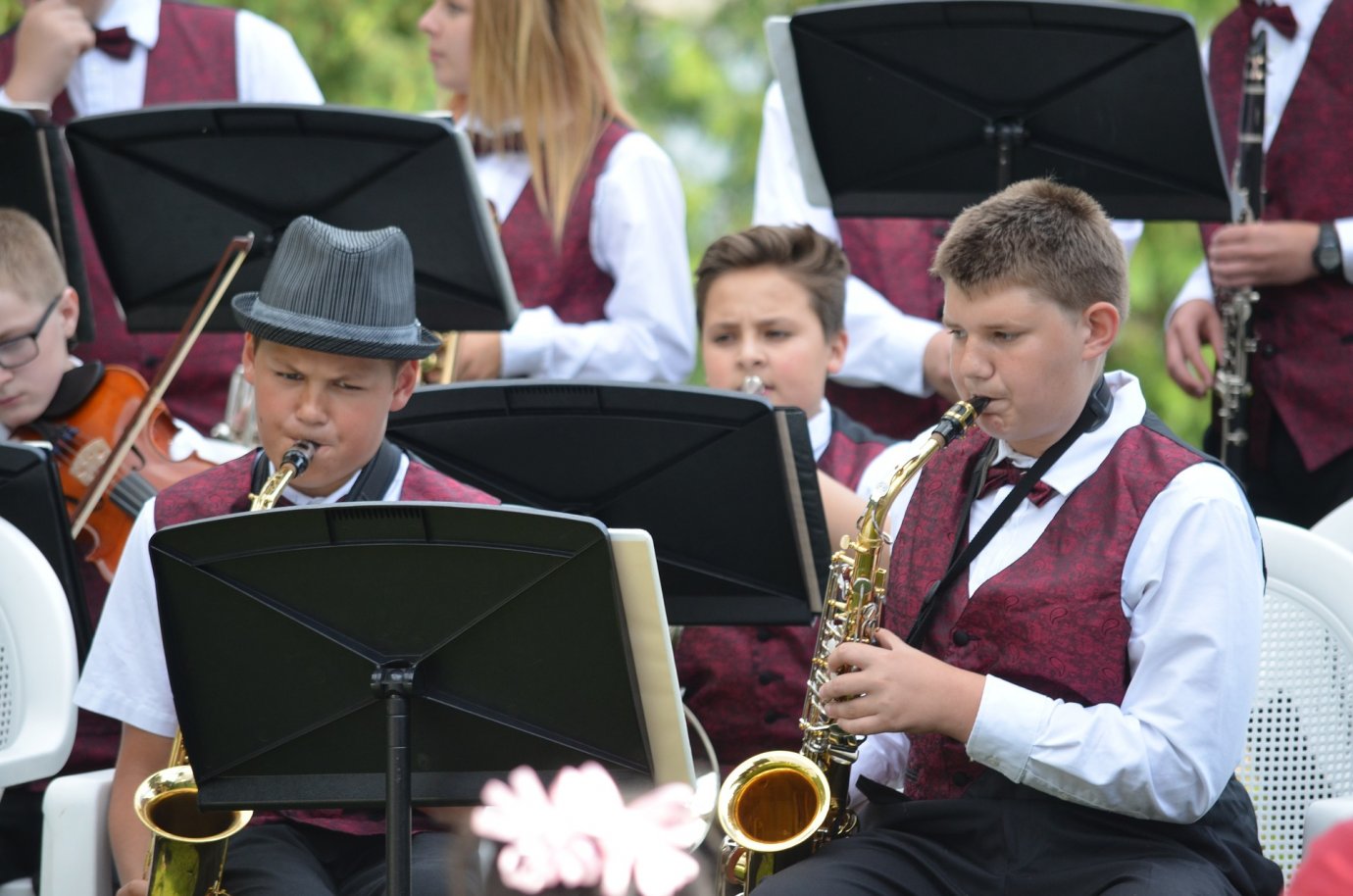Use Positive Encouragement & Support

Listen to music with them
Surrounding your child with music by regularly having it on in the car and at home makes music a normal part of their lives. You can even help them to enjoy it more by dancing around and singing along together. These positive feelings and associations can then carry across to them playing music of their own.
Let them demonstrate what they’ve learnt
Letting them show you what they have learnt after each lesson also helps them to understand how much they have taken in. This may also encourage them to pay more attention during their lessons so that they have something to teach you afterwards. Children can enjoy knowing something that adults don’t, and this can help them to take pride in honing their skills.
Learn with them
This takes the previous point one step further. Taking lessons with your child can be a great bonding experience and create some wonderful memories. If you demonstrate during lessons that you are keen to learn, then they may pick up that quality too.
Reward practice time
When your child picks up their instrument of their own accord and practices, it’s definitely worth taking the opportunity to reward this behaviour. After all, the more they practice the better they will become, and practice will be the key to their success.
Remind them of their outcome
Some days it’s almost guaranteed that your child won’t want to practice. It’s up to you whether you let them take a well deserved break; however, reminding them of their outcome can help to overcome this. Maybe they are rehearsing for an exam in which they will obviously want to do well in, or for a school concert, again which they will want to be well prepared for.
Helping them to visualise and feel what it’ll be like to achieve their goals can often spark new motivation.
Be patient
Learning and mastering an instrument takes time, if not a lifetime. In the beginning, especially with certain instruments, it can be a little painful for parents to listen to at first until the student starts producing a more pleasing sound. This process is definitely shortened if allowed to practice regularly and freely at home. It’s best to be as supportive and encouraging as you can during this period, as it can make or break their desire to continue learning the instrument.
Structure Their Time

Fitting in practice at home
Young children can have a pretty hectic schedule with after-school clubs, parties and crazy amounts of homework. Practicing an instrument is sometimes the thing that gets left until last, if there’s any time left! Helping your child to find the time to practice regularly can keep them motivated, as you know that only through regular practice will they improve. It could be just 20 minutes (or two; see the 2 Minute Rule below) in a morning before school. Then it’s done for the day.
Keeping a regular time will help to build a habit out of practicing.
Optimise practice sessions
Practice time can often just come down to playing through the music pieces that the student knows, rather than pushing forward and being selective about what to work on. This makes a massive difference in the rate at which your child will see improvement.
By giving them some structure to their practice sessions, you can ensure that they are covering all of the bases. If time is short, say only 20 minutes, only selecting a couple of areas to work on might be best. You can choose different areas for the following session. For example, one session could be running through a scale and the first section of a song that they are learning. The following session could then be to change between two chords and to work on a different section of that same song. I’m sure you get the idea.
A little planning ahead will make sure that your child gets the most out of their time spent practicing.
Set achievable goals and rewards
Setting achievable goals with your child can build excitement within them, especially when they have clear rewards, as it’s now up to them to make it happen. An example could be, “Once you can play this tune, we’ll all go out to the cinema to watch whichever film you like.”
Path of least resistance
Learning an instrument can be difficult and a lot of work for young children, however, it is also very rewarding and comes with a host of benefits.
Dedicated space
Giving your child dedicated space to practice at home is a form of encouragement. Keeping their instrument out and within easy reach with minimal setup is also going to make it easier for them to begin practicing.
Imagine, for example, having a guitar out on an instrument stand, with sheet music on a music stand next to their chair and foot stool ready for them to sit down and play. Compare this with them having to spend a few minutes getting everything out and setup.
Use the 2 minute rule
This tip is from a book called ‘Atomic Habits’ by James Clear. The 2 minute rule states that:
“When you start a new habit, it should take less than two minutes to do.”
In terms of practicing an instrument, examples would be to begin by playing just one scale 3 times, or play through 4 bars of a song, etc. Break the task down into an easy-to-do chunk. Once started though, the tendency is to continue practicing. Normally, just beginning a practice session is the hardest step, then once you get going you have the momentum to continue.
Rephrase “practice time”
The words we use come with different connotations. By changing what you call practice time into something that sounds more fun, like “playing time” or “rock star time”, can change the way your child views it.
Give Them Recognition

School concerts
Normally, schools with a music department will hold concerts for their students to perform in front of parents, teachers and other school students. These opportunities are excellent for developing your child’s confidence and self esteem. They also act as an effective deadline to learn a piece of music by the concert date.
Children love to have the support of their parents at such events. A lot of parents would also film their child’s performance, not just for the memory, but so that they can review their performance afterwards. They can show it to other family members who couldn’t make the concert. Students may start taking pride in what they have done if they see their parent’s so enthusiastic about it.
It can be nerve-wracking to step up on stage, but once it’s over, it’s never normally as frightening as it first seemed.
Choose The Right Teacher

Make sure they get along
Always attend the first lesson your child has with a new teacher if you can. This is easier done with private lessons outside of school. Ask how they feel their lesson went and what they think of their new tutor. It’s also good to follow up and check in after a few lessons as to whether they still feel the same.
Keep in touch
Having regular updates from your child’s teacher will keep you in the loop. You can then ask your child about specific things that they are learning and gauge their level of engagement.
Choose your teacher
If you are considering getting lessons for your child and are currently looking for a quality private teacher, then have a browse below. We set the standards high for all of our tutors so that you have access to the best.



